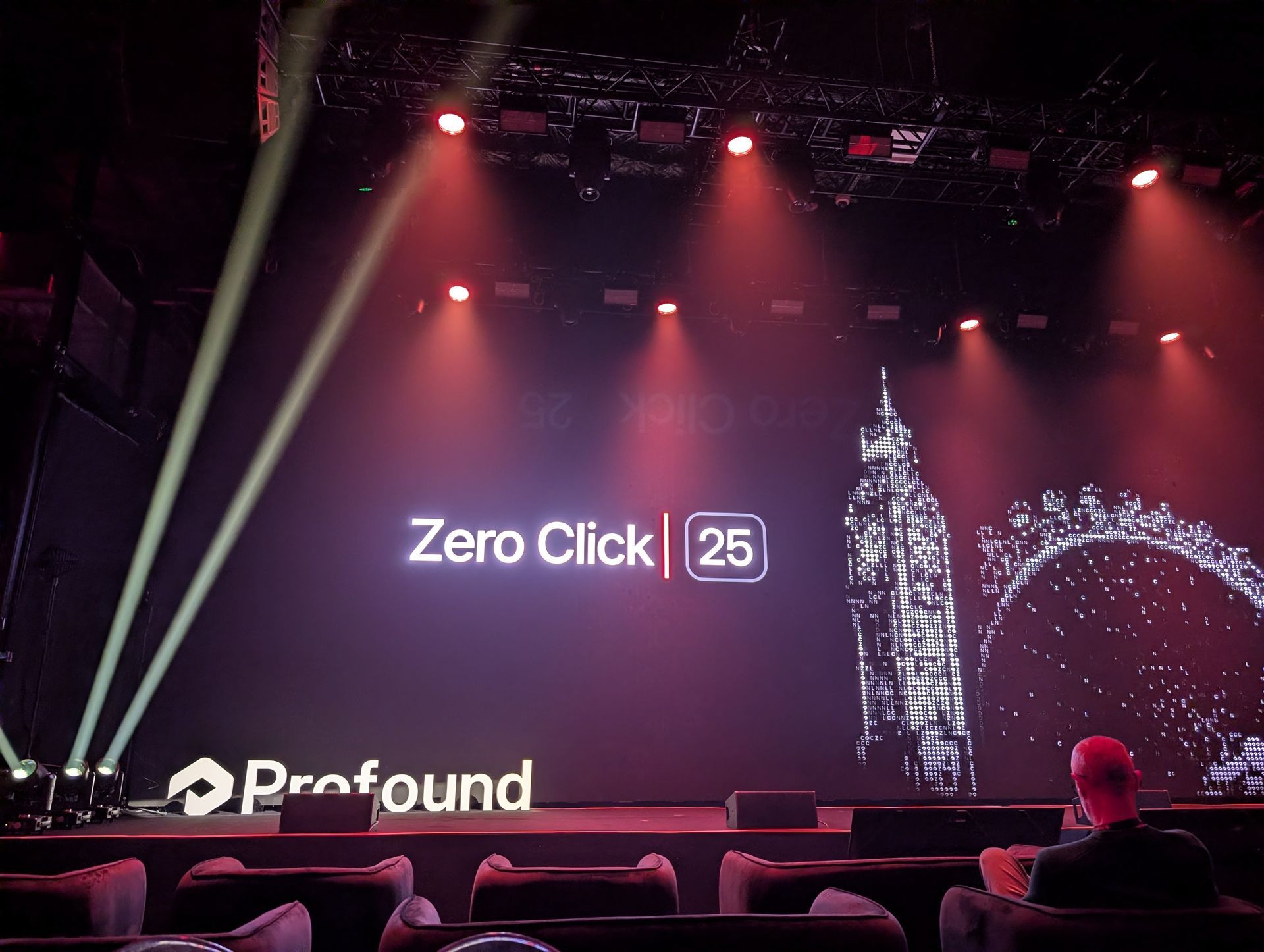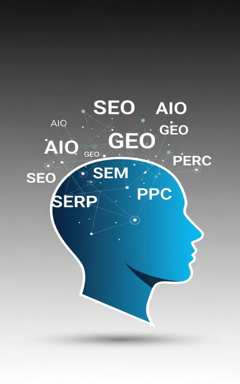By Richard George
•
October 14, 2025
The ground beneath our feet is shifting For years, we in the digital marketing world have played a game with a well-understood set of rules. The aim was to get the number 1 spot on Google and gain as much of the click share for the brands we work with. We became masters of SEO strategies involving content, keywords, technical excellence, backlinks, and domain authority. However as we stand coming to the end of 2025, the entire landscape of search is undergoing a seismic shift. The game hasn't just changed; we're playing on a completely new field. The rise of Large Language Models (LLMs) like ChatGPT and Google’s Gemini and AI Overviews is fundamentally altering how people find information. It's no longer a conversation about a list of blue links. It's about answers, served directly, conversationally, and contextually. This isn't a distant future; it's the new normal. And for businesses, it begs the question: How do you stay visible when the destination is no longer your website, but an AI-generated summary? The good news? This isn't a eulogy for SEO . It's a call to evolution. The principles of being found online are expanding, and for those willing to adapt, the opportunities are immense. It's time to move beyond rankings and focus on what truly matters: becoming the definitive, trusted answer in your field. The New SEO Playbook: From Rankings to Answers, from Content to Context The data from 2024 and predictions for 2025 paint a clear picture. We're seeing what industry analysts call "The Great Decoupling"—a scenario where search impressions can rise, while clicks to websites fall. Why? Because AI is answering user queries directly within the search results page. This might sound alarming, but it’s actually a profound opportunity. It forces us to shift our focus from a transactional metric (clicks) to a more foundational one: visibility and authority. The new digital marketing mantra is: Visibility over rankings: It's more important to be present in the answer than to be position one. Context over content: It's not just what you say, but how you structure it for AI to understand. Conversations over lists of blue links: Users are asking complex, multi-step questions, and we need to provide content that fuels that conversation. To win in this new era, we need a strategy built on three core pillars: building unshakeable authority, speaking the language of AI, and extending your answers across the entire digital ecosystem. Pillar 1: Build Unshakeable Authority with Content Hubs In a world flooded with AI-generated content, genuine expertise is your ultimate competitive advantage. The concept of E.E.A.T (Experience, Expertise, Authoritativeness, and Trust) is more critical than ever. The way to demonstrate this is by building Entity Authority through comprehensive Content Hubs. Stop thinking about individual keywords. Start thinking about owning entire topics. An entity is a specific person, place, thing, or concept that search engines understand. Your goal is to become the primary entity associated with your area of expertise. Create a Network: Build a central "pillar" page that provides a broad overview of a core topic. Then, create a network of "cluster" content—how-to guides, FAQs, case studies, and articles—that delve into specific sub-topics. Internal Linking is Key: Each cluster piece should link back to the pillar page using descriptive anchor text. This isn't just an SEO tactic; it's how you create a semantic map, showing AI the relationships between concepts and reinforcing your authority. Authenticity is Your Moat: Your content must offer original insights, real-world experience, and a unique perspective. This is the "human-generated content" that LLMs cannot replicate and will increasingly rely on for credible information. Pillar 2: Speak the Language of AI with Structure and Schema To be the source for an AI-generated answer, you need to make your content as easy as possible for machines to read, interpret, and cite. This is where technical optimization becomes the bedrock of your content strategy. Think in "Chunks": LLMs process information in small, digestible segments. Structure your content accordingly. Use short paragraphs, clear H2/H3 headings phrased as questions, and bulleted lists. This "content chunking" makes it easy for an AI to pull a specific piece of information to answer a query. Implement Structured Data (Schema): Schema markup is the language of search engines. It's code you add to your site to explicitly tell AI what your content is about. Use FAQPage, HowTo, Article, and Organization schema to define your content. This is like putting a name tag on every piece of information, making it unambiguous. Define and Reference Entities: Use the @id property in your schema to give each core entity (like your company or a key person) a unique identifier. Then, reference that ID wherever the entity is mentioned. This creates a site-wide semantic graph, connecting the dots for AI and solidifying your knowledge base. Pillar 3: Extend Your Answers Everywhere Google's "fan-out query technique" means that for any single search, its AI is exploring numerous related questions and subtopics. Your content needs to be the source for as many of those "fan-out" queries as possible. Furthermore, the search landscape is fragmenting. Users are finding answers on Perplexity, ChatGPT, and social platforms. Your strategy must be omnichannel. Answer the Full Spectrum : Your content hubs should address a wide range of questions, from broad informational queries to specific, long-tail technical questions. Leverage User-Generated Content (UGC) : Integrate customer reviews, product Q&As, and insights from community forums like Reddit and Quora into your content. These are goldmines of authentic, intent-driven language that both users and AI trust. Track Your Visibility Beyond Google : Start monitoring your brand's presence and citations across all major AI platforms. The goal is to ensure that whether a user asks a question on Google, Bing, or directly into an LLM, your brand is the one providing the answer. The Future is About Trust The rules of search have changed, but the fundamentals of building a great business have not. This new era of AI-powered search rewards clarity, structure, and, above all, credibility. By building deep topical authority, structuring your content for machine comprehension, and ensuring your expertise is visible everywhere your audience is looking, you won't just survive the shift—you'll be in a powerful position to thrive. The future of search isn't about chasing algorithms; it's about becoming the algorithm's most trusted source.








